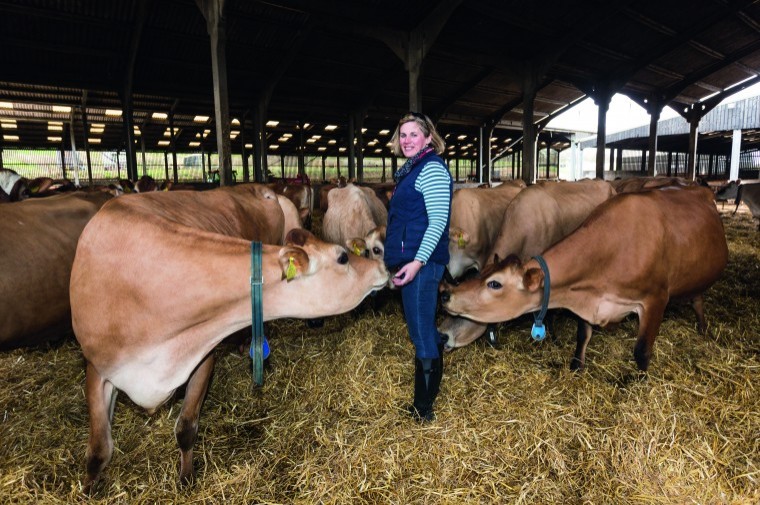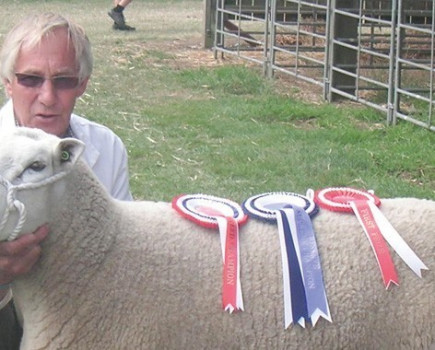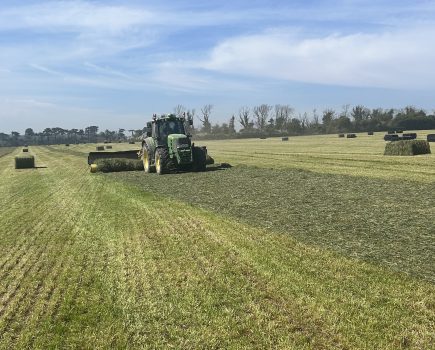Well, well, well… it would appear to be back with a vengeance; the “Achilles heel” for most livestock farmers, otherwise known as bluetongue.
The first text came through on 26 August regarding a suspected case in South Norfolk and since then we have had a steady stream of texts from APHA (Animal and Plant Health Authority) updating us on our movement status regarding animals.
At the point of writing, some areas of Kent appear to be in a Restricted Zone (RZ) whilst others are in a Temporary Control Zone (TCZ) and the remaining areas are free to move as they wish. This map changes daily/hourly. I believe the whole of Kent, Surrey and Sussex will be one restricted zone in the near future.
Bluetongue remains a notifiable disease. Sheep would appear to suffer the highest mortality, with milk loss in dairy cows coming a close second. It does not affect people, or food safety, but it does result in prolonged animal movement and trade restrictions, creating an impossible financial situation for many farmers in the affected zones.
We suffered a huge financial loss last time (extra feed, labour, overstocking etc) when movement restrictions were put in place, and to continue with movement restrictions will see many farmers face unavoidable financial difficulties that will become unsustainable. If any farmer/farmers are suffering, please contact the FCN (farming Community Network) RABI (Royal Agricultural Benevolent Institution) or the NFU as soon as possible.
I understand the need to eradicate this midge-borne virus, but common sense must prevail in addition to the needs of the country. If I understand it correctly, the Government is reluctant to declare the country a bluetongue zone as this would shut down our breeding stock export market and other such markets, including import/export of semen etc.
Bluetongue is everywhere, it would appear. On the continent over 4,000 cases have been detected, so why not merge us all as one? At the present time the virus has been detected in Yorkshire and down to Canterbury; I estimate that it has probably spread far and wide throughout the country at this time. Fingers crossed that we have a cold/frosty winter to try and contain/reduce the midge burden.
With harvest over and the 2024 drilling season nearly completed for another year, this seems a good opportunity to reflect on the past year’s crop growing season. In general terms all went well, no records broken but not disastrous. A challenging spring for most farmers appeared to affect the protein content in the crop. A lot of wheat fell short of the requirements for milling. Maize struggled in the cold, wet, early spring and yields reflect this.
Dunging the yards was one of the first jobs on the list, followed by a long, long list of others. Winter is always a time to give all the machinery a complete overhaul.
This time of year, the beautiful colours of autumn are showing, the fields are changing daily and the coastal fog is making an appearance again. We are back in a routine (of sorts); it’s dark in the mornings so head torches are now back out of hibernation. Half term will have been and gone and will be closely followed by the big “C”…
An unexpected proposal came from Monty at the beginning of September, with an announcement that he would like to take a gap year before heading off to uni. He had mapped out a solid plan for his year and upon reflection we all felt that this was the best way forward.
The university has readily deferred his place until Sept 2025. November will see him heading to Scotland for three months to work/learn on a huge dairy farm followed by three months farming in America. Fingers crossed he will be home by silage time and harvest.
I am sure he will have the most amazing time and be an asset for whoever he works for. We will certainly miss him, and the supper table won’t benefit from his humour for a while. His number one fan will live on Facetime most nights while he is away.
Until next time, stay safe.







